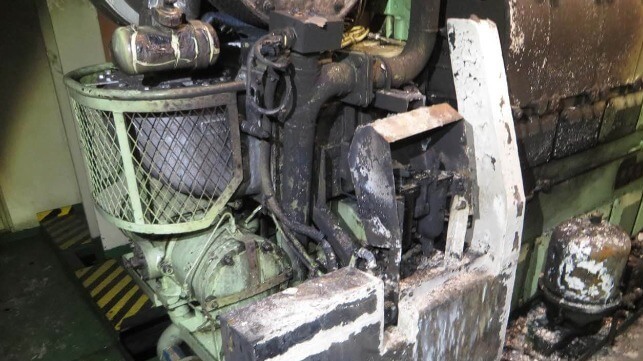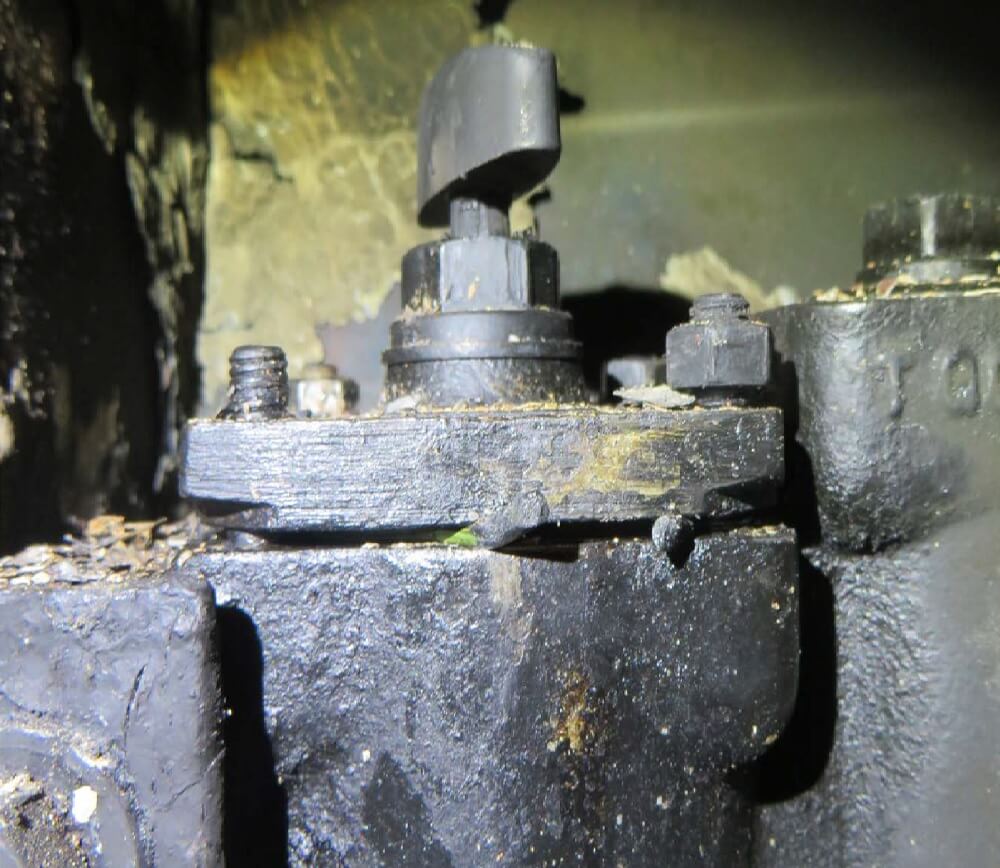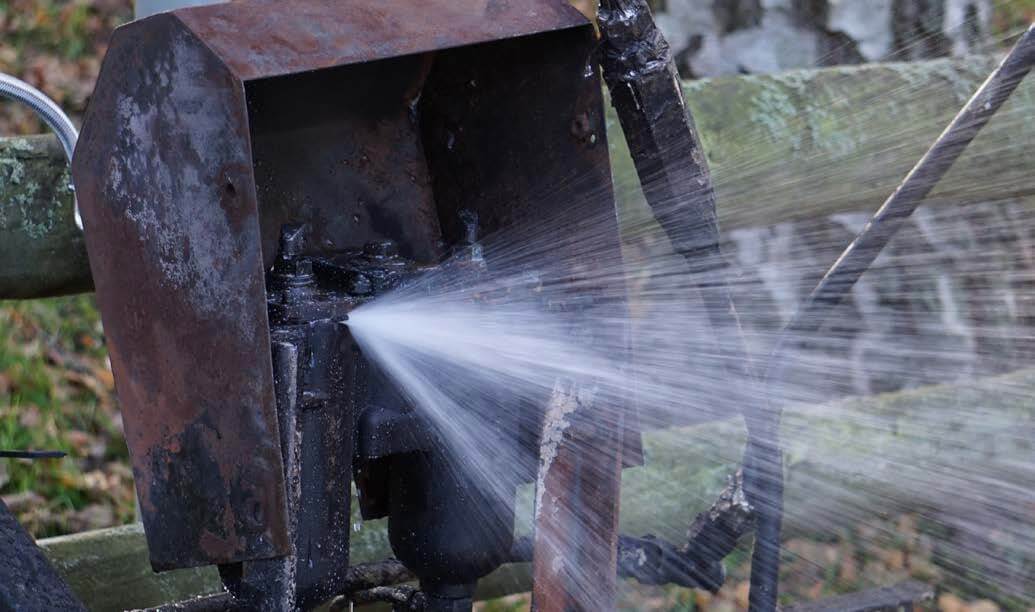Report: Engineer's Lack of Ability Led to Deadly Fire on LPG Carrier

The UK's Marine Accident Investigation Branch (MAIB) has released its final report on a fatal engine room fire aboard the LPG carrier Moritz Schulte in August 2020. The investigation was delayed by the pandemic, and the final publication followed three years to the month after the accident.
On the morning of August 4, 2020, the LPG/ethylene carrier Moritz Schulte was offloading a cargo of ethylene at Antwerp. The third engineer, Rajendra Naidu Ponnada, asked the second engineer if he could clean the fuel filter on auxiliary engine one (AE1), which was on standby. Ponnada had recently been promoted, despite unfavorable performance evaluations in his record. The second engineer allowed him to do so and asked if he needed help; Ponnada said that he could do it on his own. The second engineer reminded him that the engine had to remain on standby.
Ponnada started in on the task of cleaning the fuel filter. Instead of rotating a knob at the top of the filter housing to initiate a simple flushing procedure - as the manufacturer recommended and as previous third engineers aboard the vessel had done - he partially valved off the filter using a three-way selector valve, then began to disassemble the housing.
Because it had only been partially valved off, the filter was still under about 80 PSI (5.5 bar) of pressure. When he backed off the nuts that secured the top cover, fuel burst through the o-ring seal and sprayed onto the adjacent auxiliary engine two (AE2), according to MAIB's reconstruction. (The agency salvaged the filter assembly and pressurized it with water to evaluate the spray.)

The loose nuts, raised cover and ruptured o-ring on the top of the fuel filter housing (MAIB)

A reconstruction of the spray from the filter using pressurized water (Image courtesy MAIB)
There were gaps in the lagging on AE2's exhaust, according to MAIB, and the fuel quickly caught fire. It appears Ponnada tried to stop the fuel leak by valving off the intake, then attempted to escape from the smoke-filled engine room. His crewmates put out the fire and attempted to find him in the dark, smoky interior, but they could not locate him. A shoreside fire and rescue team found him about one hour later: he was on the mezzanine level, just feet from the auxiliary engines, unconscious and with labored breathing. He was taken to an intensive care unit, but never regained consciousness and died nine days later. The official cause of death was cyanide and carbon monoxide poisoning from smoke inhalation.
Sadly, MAIB's post-accident inspection found that the filter on AE1 was clean from the start, and Ponnada was performing an "unnecessary task." He had likely been confused by discrepancies between OEM recommendations, the company's planned maintenance system (PMS) instructions, and the practice of past crewmembers, MAIB concluded.
"The 3/E’s decision to remove the AE1 fuel filter elements without first isolating the fuel from the filter assembly demonstrated significant shortfalls in his understanding of machinery systems," found MAIB. "The 3/E was unaware he had chosen an unsafe system of work that posed a significant danger to the vessel, its crew and, ultimately, himself."
On examination of Ponnada's personnel file, MAIB found some inconsistencies. There was no evidence that he had completed promotion checklists at the time that he was promoted to fourth engineer. In addition, the checklist for his promotion from fourth to third had not been completed; the two recommendations for his promotion to third appeared to be those used for his earlier promotion to fourth; and he had not attended a required company course for junior officers. The agency faulted the shipmanager's personnel management procedures for allowing Ponnada to be promoted beyond his abilities.
"This fatal accident has demonstrated the risk of promoting candidates without satisfactory evidence of their competence in terms of technical and behavioral skills, knowledge and experience," concluded MAIB.
The investigators also noted that if the vessel had been built one year later, it would have been required to have emergency escape breathing devices (EEBDs) in more locations around the engine room - including next to the ladders, where Ponnada was found.
The ship manager, BSM, has voluntarily retrofitted extra EEBDs to Moritz Schulte and other older ships to bring them up to requirements for more modern vessels. BSM also undertook a comprehensive corrective action program across its ship management centers, including a review of its crew management software and its documentation requirements for promotions. It has also added shipboard drills for rescues in smoke-filled compartments.
No comments:
Post a Comment